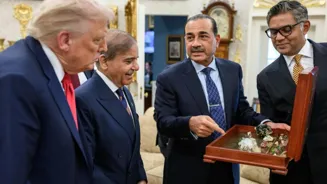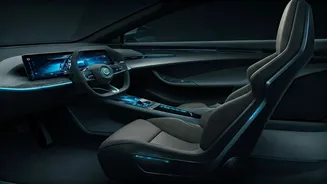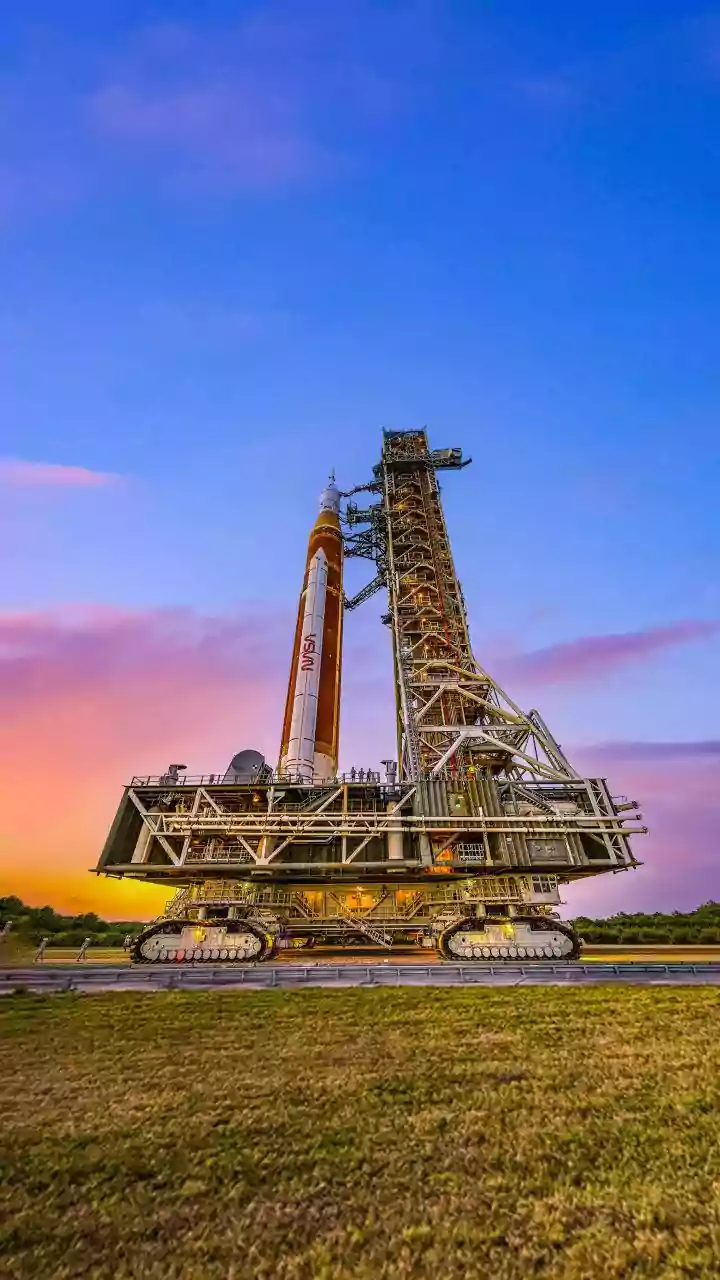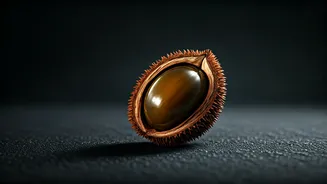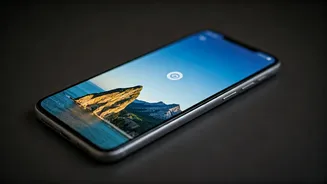Pakistan went on an all-out charm offensive, with its leadership going out of its way to court US President Donald Trump during their recent White House
meeting. A photo released by the White House shows Prime Minister Shehbaz Sharif and Army Chief Asim Munir presenting Trump with an elaborate 18x18 inch wooden box filled with colorful stones - believed to be samples of Pakistan's rare earth mineral reserves. Some of the larger rocks resemble bastnaesite and monazite, rich in critical elements like cerium, lanthanum, and neodymium, while the smaller pebbles appear more gemstone-like. The photo surfaced days after Trump hosted Sharif at the Oval Office, a meeting which also saw the participation of Vice President JD Vance and Secretary of State Marco Rubio. Adding to the theatrics, Sharif wore a US-Pakistan flag lapel pin, an act that sparked ridicule back home.
Is Pakistan trying to undercut its all-weather friend?
Experts believe the gesture was a clear attempt to pitch Pakistan's untapped mineral wealth as a potential alternative to China, which is currently the main supplier of America’s rare earth imports. The US is almost entirely dependent on China, which supplied 70% of rare earth imports in 2023, according to the US Geological Survey. These elements are vital for everything from advanced fighter jets like the F-35 to electric vehicles and smartphones.
In June, during the tariff war with China, President Donald Trump had announced that Beijing would make it easier for American industry to obtain much-needed magnets and rare earth minerals, clearing the way for talks to continue between the world's two biggest economies. In return, Trump said, the US will stop efforts to revoke the visas of Chinese nationals on US college campuses.
Notably, the Chinese government in April announced licensing requirements that slowed the supply of desperately needed rare earth minerals to the United States. Furious about the move, Trump threatened to call off the Geneva arrangement. At a meeting in Geneva, the two countries agreed to back off: America's tariffs went back down to a still-high 30% and China's to 10%.
It is believed China has incredible leverage over the United States in the global economy with rare earths.
